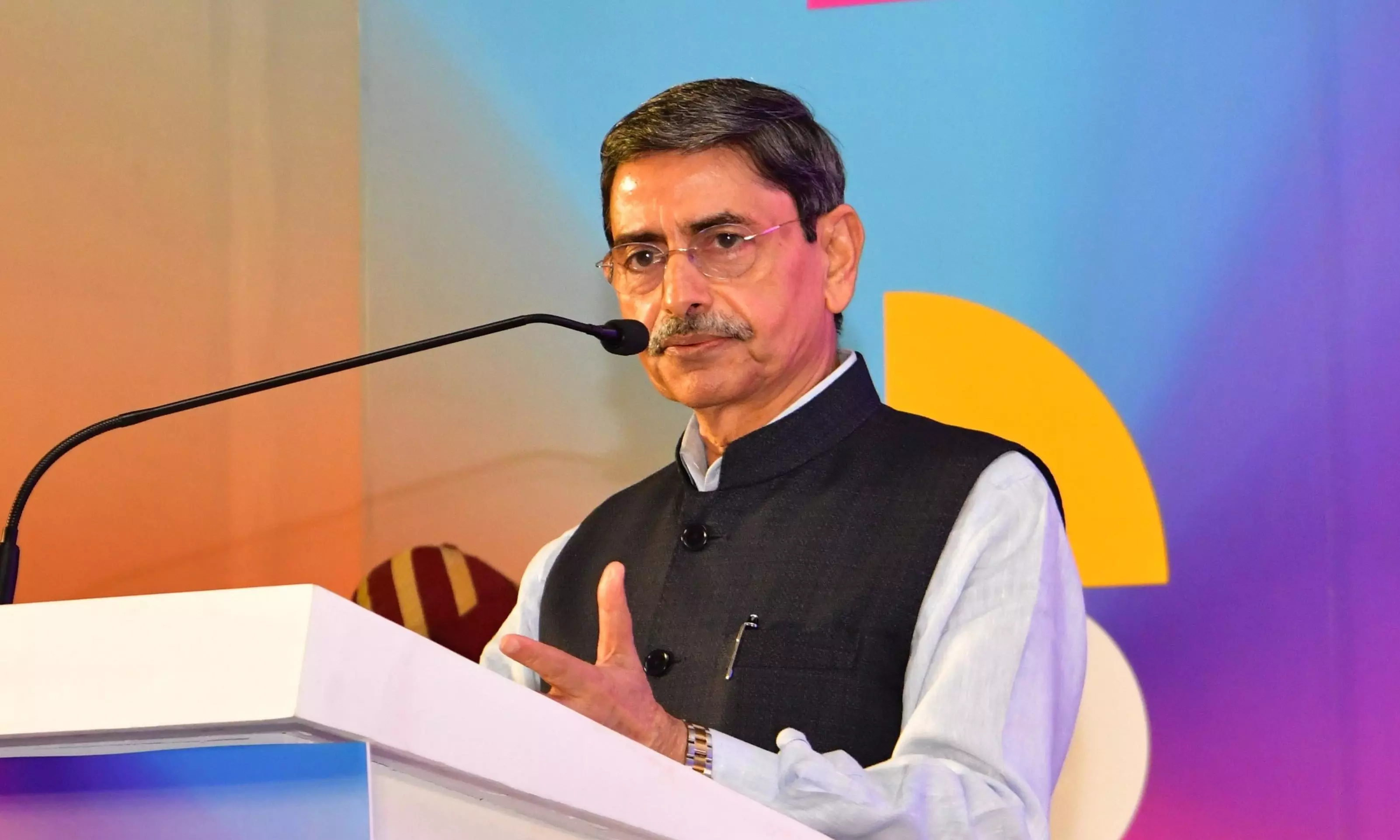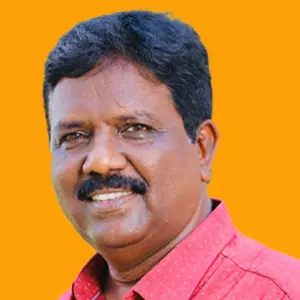
- Home
- India
- World
- Premium
- THE FEDERAL SPECIAL
- Analysis
- States
- Perspective
- Videos
- Sports
- Education
- Entertainment
- Elections
- Features
- Health
- Business
- Series
- In memoriam: Sheikh Mujibur Rahman
- Bishnoi's Men
- NEET TANGLE
- Economy Series
- Earth Day
- Kashmir’s Frozen Turbulence
- India@75
- The legend of Ramjanmabhoomi
- Liberalisation@30
- How to tame a dragon
- Celebrating biodiversity
- Farm Matters
- 50 days of solitude
- Bringing Migrants Home
- Budget 2020
- Jharkhand Votes
- The Federal Investigates
- The Federal Impact
- Vanishing Sand
- Gandhi @ 150
- Andhra Today
- Field report
- Operation Gulmarg
- Pandemic @1 Mn in India
- The Federal Year-End
- The Zero Year
- Science
- Brand studio
- Newsletter
- Elections 2024
- Events
- Home
- IndiaIndia
- World
- Analysis
- StatesStates
- PerspectivePerspective
- VideosVideos
- Sports
- Education
- Entertainment
- ElectionsElections
- Features
- Health
- BusinessBusiness
- Premium
- Loading...
Premium - Events

Constitution says nothing on making governors university chancellors; rather, it's a norm enacted by state legislatures, which should be avoided, said Commission
The Tamil Nadu Governor’s office has announced that the Vice-Chancellors’ Conference of Universities in Tamil Nadu will be held on April 25–26. It has further stated that “the Governor, who is the chancellor of the Tamil Nadu state universities, will preside over the conference”.
Even after the Supreme Court pointed out that he has acted outside the law, Tamil Nadu Governor RN Ravi continues to show that he is unwilling to respect legal boundaries.
The press release from the Governor, stating that he continues to be the chancellor of the state universities and has convened the vice-chancellors’ event on the basis of that authority, is further proof of Ravi’s tendency to disregard the law.
Governor Ravi’s antics
Ravi did not give his assent to the Bills enacted by the Tamil Nadu government that removed the governor from the role of chancellor of the universities.
It was in the case filed by the Tamil Nadu government that the Supreme Court, exercising its special powers under Article 142 of the Constitution, declared all 10 Bills to be law. In all the 10 Bills, the word ‘Chancellor’ was replaced with the word ‘Government’. In the absence of such amendments in the laws of universities other than these 10, it is to be assumed that the governor continues to be the chancellor of the remaining state universities.
If we want to safeguard Tamil Nadu’s higher education from Governor Ravi, the Tamil Nadu government should amend the laws of the remaining state universities, just as it did for the 10 universities from which the Governor was removed as the chancellor.
However, even after the Supreme Court’s strong condemnation, is it morally correct for the governor to continue in office and preside over the vice-chancellors’ conference?
Ravi should reflect on this. The Tamil Nadu government must clarify how it intends to address this legally.
What Constitution says
There is no provision in the Constitution for the governor of a state to act as the chancellor of that state’s universities.
Nothing in the Articles of the Constitution defining the powers and duties of the governor makes provision for the role of university chancellor. This responsibility is assigned to the governor through the University Acts enacted by the state government.
Also read | If governors breach boundaries, the judiciary has to step in
The Justice Punchhi Commission, constituted by the United Progressive Alliance (UPA) government in 2007, extensively studied the issue of appointing governors as chancellors.
Role of governor
“An important question which arises with respect to the governor is whether he should have any role in the administration of education in a state. This question arises because governors are routinely appointed as chancellors in state universities,” the Punchhi Commission said.
It also said, “State University Acts generally provide that the governor by virtue of his office, shall be the chancellor or head of the university concerned and endowed with various powers such as appointment of vice-chancellor. The question is whether the governor’s functions as chancellor of a university fall within the purview of Article 163(1).”
The Commission quoted two judgments related to this issue and elaborated on them: “In Bhuri Nath v. State of J&K, the Supreme Court interpreted a J&K statute constituting a board of management for the Vaishno Devi Shrine with the governor as the ex-officio chairman. The court held that the Act had entrusted powers to the governor in his official capacity and that he was not to act on the aid and advice of the council of ministers.
"In Hardwari Lal v. GD Tapase, it was similarly held that if the governor was appointed as the chancellor of a university, then the state government could not give advice to the governor and that the governor was to act entirely in his discretion.”
On governor’s authority
The Punchhi Commission’s view is that the courts arrived at this ruling because the responsibility of the university chancellor is not among the governor’s duties as defined in the Constitution.
It clearly stated that “the laws enacted by the state legislatures confer those powers on the governor. That should be avoided.”
Also read | Governor as catalyst, not inhibitor: When SC showed Raj Bhavan its place
“Conferring statutory powers on the governor by state legislatures have that potential and should be avoided. Making the governor the chancellor of the universities and thereby conferring powers on him which may have had some relevance historically has ceased to be so with change of times and circumstances.
"The council of ministers will naturally be interested in regulating university education and there is no need to perpetuate a situation where there would be a clash of functions and powers,” the Commission observed.
The Commission also noted that the governor should not be assigned functions casually under any statute and that his role should be confined to the constitutional provisions only.
Report and Modi government
The seven-volume report of the Punchhi Commission was submitted to the Union government in 2010. However, the Union government did not implement its recommendations.
Also read | Stalin's delimitation push presents a quintessential DMK strategy
When a question was raised in Parliament in December 2022, Union minister Nityanand Rai responded: “The report was circulated to all the state governments/UTs and Central ministries/departments for their comments. The report along with the comments received from state governments/UTs and Central ministries/departments was placed before the Inter-State Council (ISC) in its 11th meeting held on 16.07.2016.
"ISC decided that the recommendations of the Commission may first be examined by the Standing Committee of the ISC. Accordingly, the recommendations of the Punchhi Commission were examined by the Standing Committee of the ISC. The recommendations of the Standing Committee were shared with all the state governments/UTs to furnish their comments.”
Opposition parties didn’t act
Although many of the 273 recommendations made by the Punchhi Commission sought to strengthen the powers of state governments, most opposition parties did not push for their implementation. Only the DMK made some efforts during its tenure.
Following the Supreme Court’s verdict in the case filed by the Tamil Nadu government against the Governor, it is likely that no state government will repeat the mistake of appointing the governor as the chancellor of its universities.
If we want to safeguard Tamil Nadu’s higher education from Governor Ravi, the Tamil Nadu government should amend the laws of the remaining state universities, just as it did for the 10 universities from which the Governor was removed as the chancellor.
It would be prudent for the Tamil Nadu government to do so in the current legislative session itself.
(The Federal seeks to present views and opinions from all sides of the spectrum. The information, ideas or opinions in the articles are of the author and do not necessarily reflect the views of The Federal.)


